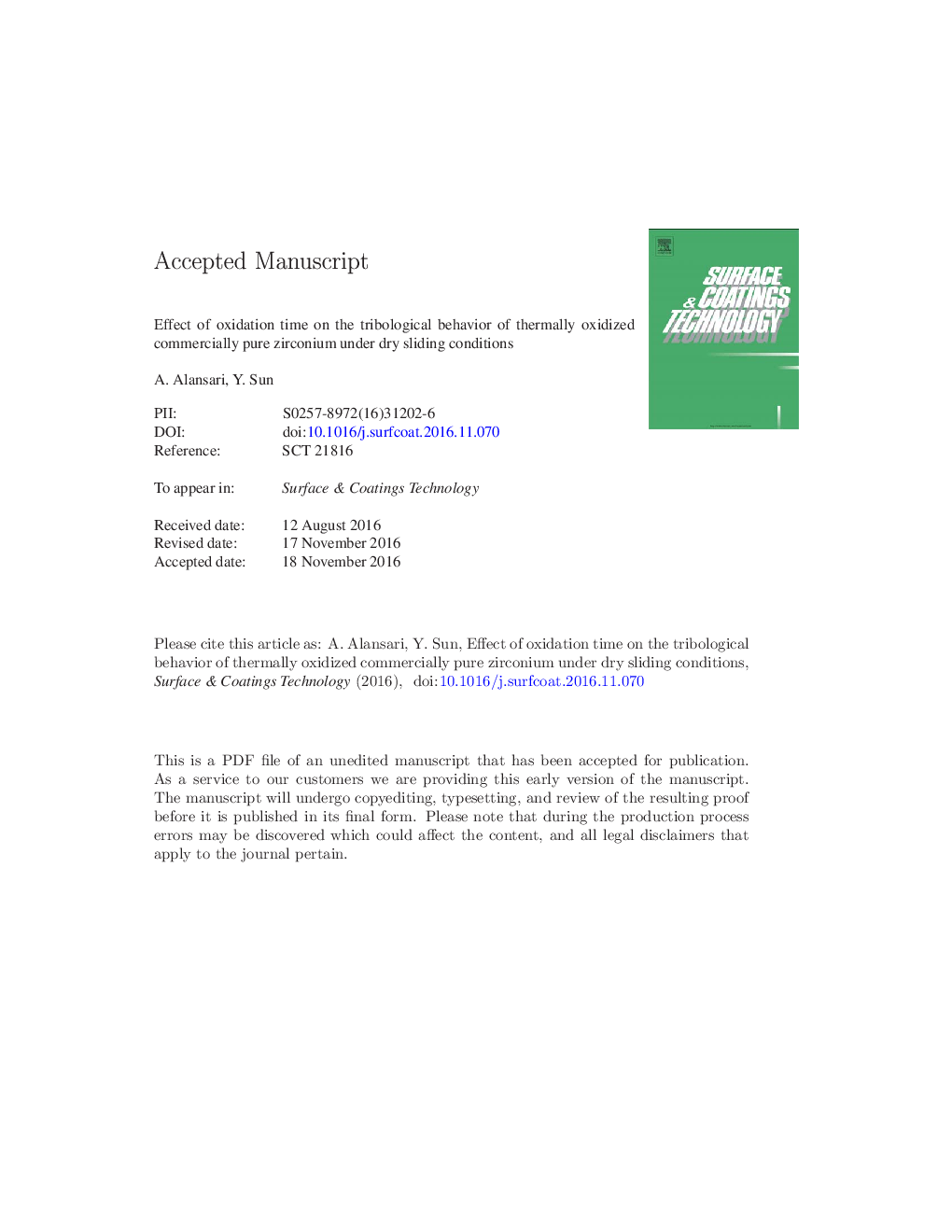| Article ID | Journal | Published Year | Pages | File Type |
|---|---|---|---|---|
| 5465252 | Surface and Coatings Technology | 2017 | 33 Pages |
Abstract
Thermal oxidation is an effective surface engineering technique to harden the surfaces of zirconium (Zr) and its alloys for improvement in friction and wear performance. In the present investigation, commercially pure zirconium (CP-Zr) is oxidized at 650 °C for a wide range of times from 1 h to 72 h with the aim to study the effect of oxidation time on the tribological performance of CP-Zr. It is found that a dense, pore-free and adherent zirconium dioxide (ZrO2) layer can be produced at the surface for oxidation times less than 12 h. Further increasing oxidation time leads to the gradual development of pores in the inner part of the oxide layer and oxidation breakaway characterized by accelerated oxidation kinetics and crack formation. Oxidation time has a significant effect on the tribological behavior of thermally oxidized CP-Zr under dry sliding conditions. The 6 μm thick oxide layer produced by 6 h treatment possesses the lowest friction, best wear resistance and the highest load bearing capacity. On the other hand, the thicker oxide layers produced by longer treatment times show deteriorated tribological behavior. The results are discussed in terms of the morphology of the oxide layer and crack propagation in the oxide layer and the underlying diffusion zone.
Related Topics
Physical Sciences and Engineering
Materials Science
Nanotechnology
Authors
A. Alansari, Y. Sun,
